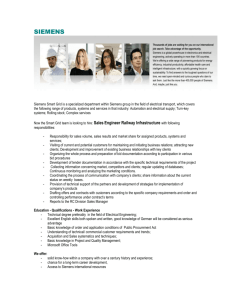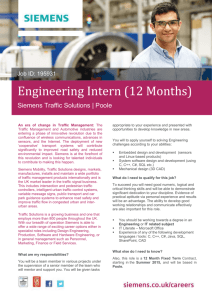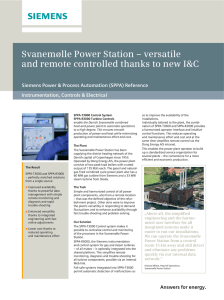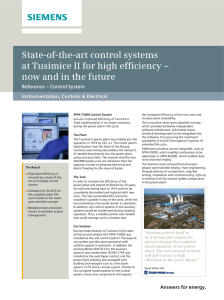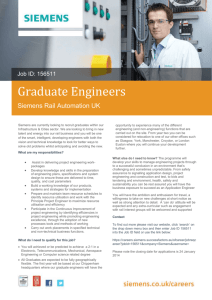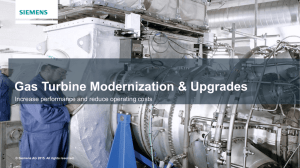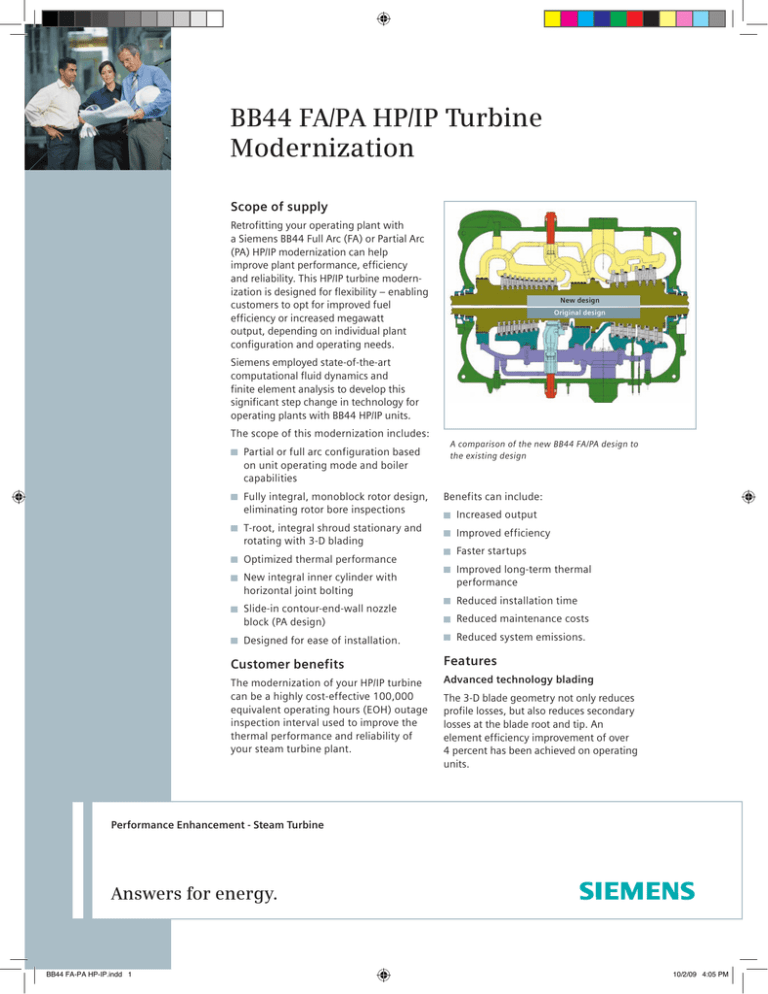
BB44 FA/PA HP/IP Turbine
Modernization
Scope of supply
Retrofitting your operating plant with
a Siemens BB44 Full Arc (FA) or Partial Arc
(PA) HP/IP modernization can help
improve plant performance, efficiency
and reliability. This HP/IP turbine modernization is designed for flexibility – enabling
customers to opt for improved fuel
efficiency or increased megawatt
output, depending on individual plant
configuration and operating needs.
New design
Original design
Siemens employed state-of-the-art
computational fluid dynamics and
finite element analysis to develop this
significant step change in technology for
operating plants with BB44 HP/IP units.
The scope of this modernization includes:
Partial or full arc configuration based
on unit operating mode and boiler
capabilities
Fully integral, monoblock rotor design,
eliminating rotor bore inspections
T-root, integral shroud stationary and
rotating with 3-D blading
Optimized thermal performance
New integral inner cylinder with
horizontal joint bolting
Slide-in contour-end-wall nozzle
block (PA design)
Designed for ease of installation.
A comparison of the new BB44 FA/PA design to
the existing design
Benefits can include:
Increased output
Improved efficiency
Faster startups
Improved long-term thermal
performance
Reduced installation time
Reduced maintenance costs
Reduced system emissions.
Customer benefits
Features
The modernization of your HP/IP turbine
can be a highly cost-effective 100,000
equivalent operating hours (EOH) outage
inspection interval used to improve the
thermal performance and reliability of
your steam turbine plant.
Advanced technology blading
The 3-D blade geometry not only reduces
profile losses, but also reduces secondary
losses at the blade root and tip. An
element efficiency improvement of over
4 percent has been achieved on operating
units.
Performance Enhancement - Steam Turbine
Answers for energy.
BB44 FA-PA HP-IP.indd 1
10/2/09 4:05 PM
Stiffening rib
Siemens 3-DS Blading
Inner cylinder with rib-cover half
Integral inner cylinder
Experience
One feature of this configuration is a
stiffening rib, providing a robust design
that minimizes distortion. The integration
of the inner cylinder/blade rings/dummy
rings, through use of a single casting,
eliminates leakage paths associated
with tongue-and-groove fits. In addition,
this configuration can help decrease the
duration of future maintenance outages
due to advanced technology and the
reduced number of components.
Outage installation times of as little
as four weeks can help minimize your
payback time and maximize your
profitability.
Inlet flow configuration
The BB44 FA/PA inlet guides the
flow directly into the HP blade path,
eliminating the turnaround and reducing
associated turning losses.
The 44FA/PA designs have been successfully installed and are in operation.
For more information, please contact
your local Siemens representative.
Partial arc configuration includes
upgraded control stage blading, nozzle
block and nozzle chamber
Full arc configuration eliminates
the control stage blading, nozzle
block and nozzle chamber for
maximum efficiency for units that
operate primarily at full load.
Published by and copyright © 2009:
Siemens AG
Energy Sector
Freyeslebenstrasse 1
91058 Erlangen, Germany
Siemens Energy, Inc.
4400 Alafaya Trail
Orlando, FL 32826-2399, USA
For more information, contact our
Customer Support Center.
Phone: +49 180/524 70 00
Fax:
+49 180/524 24 71
(Charges depending on provider)
E-mail: support.energy@siemens.com
Energy Service Division
Order No. E50001-D520-A251-X-76US
Printed in USA
BU 2009912123942255F IN 1009.2
All rights reserved.
Trademarks mentioned in this document are
the property of Siemens AG, its affiliates, or
their respective owners.
Subject to change without prior notice.
The information in this document contains
general descriptions of the technical options
available, which may not apply in all cases.
The required technical options should therefore
be specified in the contract.
www.siemens.com/energy
BB44 FA-PA HP-IP.indd 2
10/2/09 4:05 PM

